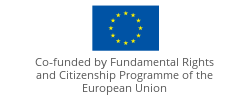
Microsite Improving JJS
Introduction
The varying levels of implementation of international standards concerning children in conflict with the law have become a problem inherent in the field of Juvenile Justice, due to various reasons, with a lack of specific training in Juvenile Justice at both the EU and the local level being key. Current training methods in how Juvenile Justice stakeholders communicate with children in conflict with the law are somewhat lacking.
Therefore, the project ‘Improving Juvenile Justice Systems in Europe: Training for Professionals’, elaborated by the International Juvenile Justice Observatory (IJJO), intends to provide information, knowledge and training to juvenile justice national authorities and staff working with juvenile offenders at a European level, in order to promote a better implementation of international standards concerning children in conflict with the law. It involves the IJJO think tank and formal network: the European Council of Juvenile Justice.
The project focuses on improving juvenile justice national systems and exchanging promising practices concerning juvenile offenders subject to sanctions or measures. It consists of training modules on the creation on child-friendly justice and follows a two part approach:
- Training of trainers (national Juvenile Justice stakeholders) and,
- National interdisciplinary workshops on child-friendly justice (for judicial staff, social workers, healthcare professionals, penitentiary staff, etc).
The training of trainers focuses on capacity building for juvenile justice stakeholders. The content of national workshops follows the recommendations of the IJJO White Paper ‘Save Money, Protect Society and Realise Youth Potential - Improving Youth Justice Systems during a Time of Economic Crisis’, in particular how and why assess the needs of children in conflict with the law who are deprived of liberty, with a special interest in promoting alternative measures and restorative approaches.
The accent is given to the importance of developing individualised programs for children in conflict with the law, and developing specific knowledge for professionals concerning children rights, communication with children and preparation to the release.
